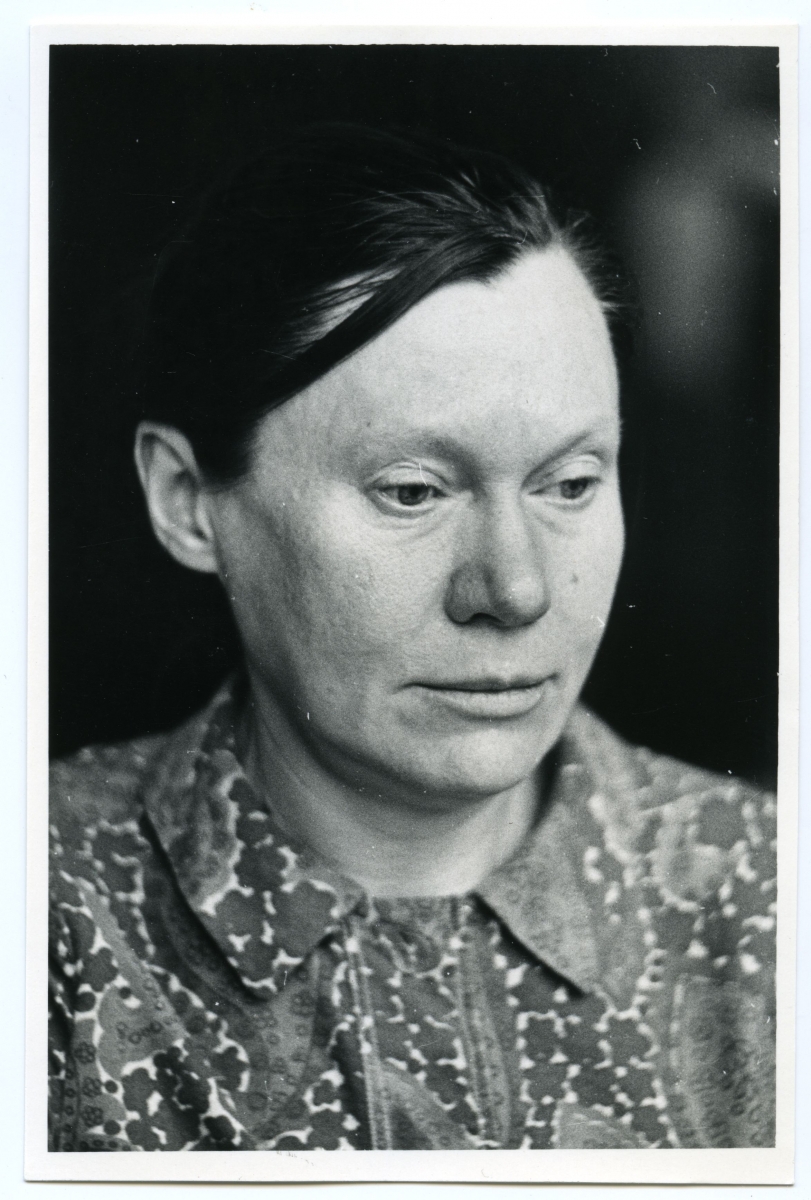
Eha Lättemäe
Eha Lättemäe (2. IX 1922 – 14. XI 2012) was an Estonian poet, who also wrote in Finnish. She was born in Viljandi and received her primary education in Viljandi County at Mõnnaste Primary School and her secondary education at Viljandi Gymnasium for Girls. From 1942-1948, she studied history and classical philology at the University of Tartu, completing a specialization in historical archives. From 1950-1951, she also studied as a post-graduate student; however, because of political accusations, she was forced to abandon her studies halfway. For the next twenty years, she worked several casual jobs while living in the vicinity of Viljandi and Pärnu, but beginning in 1959, she lived in Tallinn. In 1971, she started working as a professional writer. Eha Lättemäe died in Tallinn.
Lättemäe began writing already in primary school and her print debut was in the newspaper Noorte Hääl in 1941. Because of difficult political circumstances, a long period of no publication followed until 1957, when her poems were again published, initially in smaller local papers. In the intermediate years, she independently studied Finnish, learning it so well that she began publishing Finnish poems from 1959 in periodicals in part of Karelia belonging to the Soviet Union. In those days she wrote in Finnish more frequently than in Estonian. The debut collection Oma sammude varjust (‘From the Shadow of My Steps’, 1968) was in Estonian, but it mostly contained translations of her originally Finnish poems. Immediately in the following year, Lättemäe also published the Finnish collection Uskon aurinkoon (‘I Believe in the Sun’, 1969) in Karelia. She published a second collection in Finnish, Poimin marjoja sinisestä metsästä (‘I Pick Berries from a Blue Forest’, 1975), but in the 1970s, her poetry was already predominantly in Estonian. She published three poetry collections, whose reception by domestic critics was quite complimentary. Subsequently, she published the select collection Elulugu (‘Life Story’, 1981), which was comprised of both Estonian and Finnish poetry. The later selection Iltakävelyllä. Õhtune jalutuskäik (‘Evening Walk’, 2003) contains aligned Estonian and Finnish variants of the same poems. Together with her father Andres Lättemäe, who was a school teacher and amateur poet, she published a joint collection Kahel häälel (‘In Two Voices’, 1987).
For the poem “Kui talveöö on paratamatu…” (‘If a Winter Night Is Inevitable’), Eha Lättemäe was awarded the Juhan Liiv Poetry Prize in 2008.
In Lättemäe’s narrator-centric poetry, an independent inner world prevails over everyday reality. The poet conveys moods and feelings primarily through nature and dreamy depictions of nature-related manifestations. In terms of form, she most frequently uses a shorter free verse. The temporal background and biographical references in her poems are almost invisible, but a recurring motive of movement in the collections indirectly points to difficulties encountered in life, and then in freer political climate, to a new self-assertiveness. This motive shows coming out of seclusion, the arrival of the sun from the shadow, or, for example, with a reference to the Finnish epic Kalevala, the gathering of oneself from the river in Toonela, the realm of the dead (like in the poem Tükk-tükilt from the debut collection). The connection with Finnish poetry is evident, also with more contemporary one, especially with lyricists conjoining nature with the emotional inner world, such as Katri Vala or Finnish-Swedish author Edith Södergran. In addition to Estonian proper, Lättemäe has also written poetry in South Estonian dialect, more specifically in the Tarvastu subdialect. The collection Metsamarju. Mõtsamarju (‘Forest Berries’, 1974) contains parallel texts of short poems in official Estonian and in dialect. The dialect poems are figuratively simpler, more concrete, and have a singsong rhythm, sometimes also similar to Estonian runic verse (regivärss).
Lättemäe was valued as an intermediary of Estonian and Finnish culture. She has translated Finnish poetry into Estonian and Estonian poetry into Finnish.
E. S. (Translated by M. M.)
Original books in Estonian and Finnish
Poems
Oma sammude varjust. Tallinn: Eesti Raamat, 1968, 95 lk.
Uskon aurinkoon. Runoja 1958–1968. Petroskoi: Karjala, 1969, 115 lk.
Pääsuke päevalind. Tallinn: Eesti Raamat, 1971, 112 lk.
Nõnda ma lähen. Tallinn: Eesti Raamat, 1973, 119 lk.
Metsamarju. Mõtsamarju. Tallinn: Perioodika, 1974, 48 lk.
Poimin marjoja sinisestä metsastä. Petroskoi: Karjala-Kustantamo, 1975, 104 lk.
Elulugu. Tallinn: Eesti Raamat, 1981, 247 lk.
Andres Lättemäe, Eha Lättemäe, Kahel häälel. Tallinn: Eesti Raamat, 1981, 39 lk.
Iltakävelyllä. Õhtune jalutuskäik. Tallinn: Eesti Keele Sihtasutus, 2003, 140 lk.



